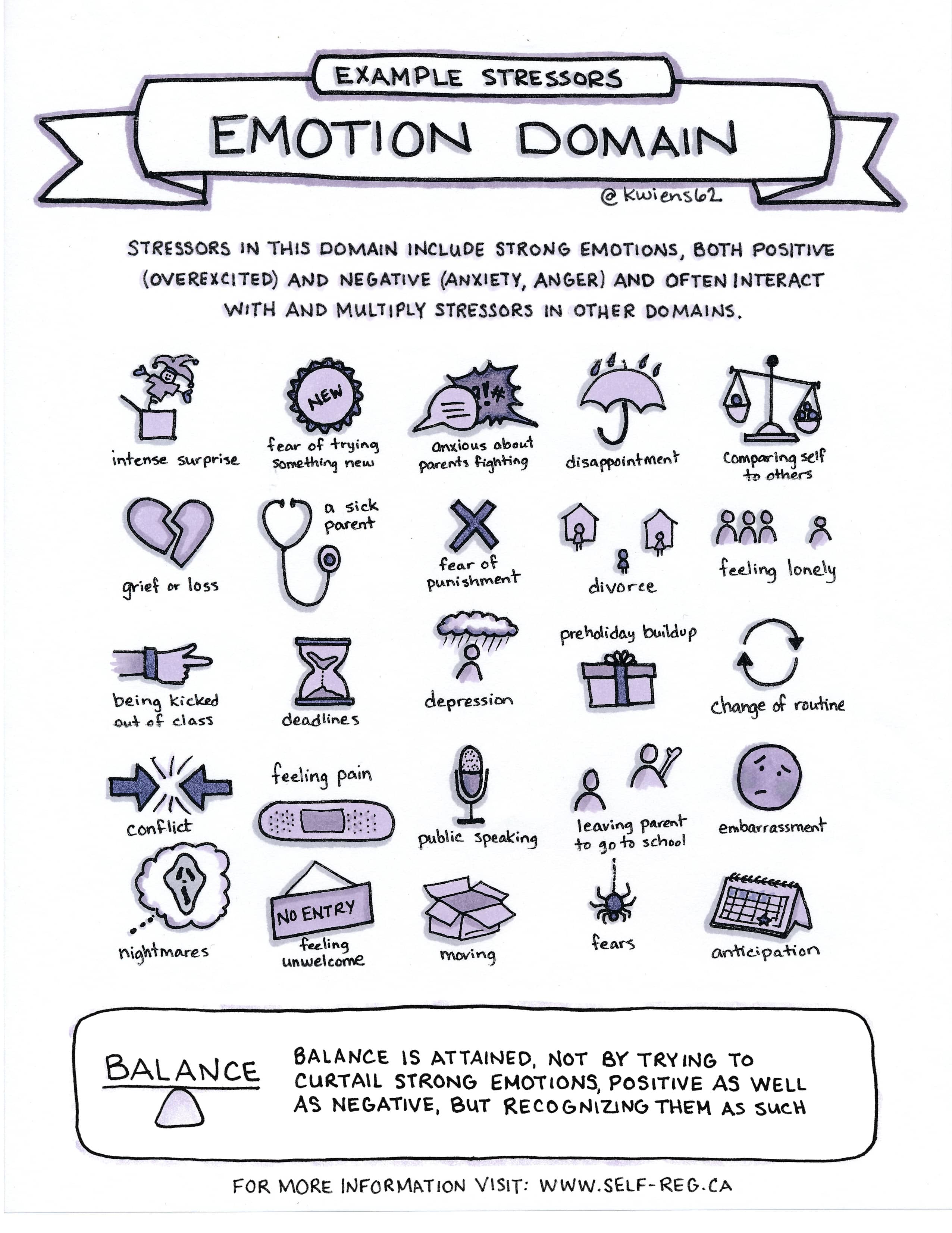
Self-Regulation
Re-posted blog from 2019. This post has been updated to reflect new resources and information.
Self-regulation comes up often in conversations about parenting and education. But, what exactly does it mean? In the following video, Stuart Shanker explains his approach to self-regulation.
Stressors
What are some of the stressors that children might experience? The following infographic describes some of the emotional stressors.
 There are more visuals for the other four domains of stressors:
There are more visuals for the other four domains of stressors:
To learn more about Stuart Shanker’s approach to self-regulation, visit The Mehrit Centre website.
Benefits of Self-Regulation
When we learn self-regulation, we can cope with both the physical and emotional stressors that can occur during stressful situations.
“A study from 2016 showed that adolescents who regularly engage in self-regulatory behavior report greater wellbeing than their peers, including enhanced life satisfaction, perceived social support, and positive affect (i.e., good feelings) (Verzeletti, Zammuner, Galli, Agnoli, & Duregger).” – Courtney Ackerman
Self-regulation can also improve executive function by helping to build attention skills. When we are regulating our emotions we can more effectively remember, plan and focus. Self-regulation can also improve emotional intelligence. We can better understand both our emotions and those of others.
Keep in mind that anxiety, depression, attention-deficit/hyperactivity disorder (ADHD), autism spectrum disorder (ASD), post-traumatic stress disorder (PTSD) and other disorders can affect self-regulation. In this cases, it is best to consult with providers who specialize in these areas.
For even more resources about self-regulation and how to teach it, check out the links below.
Resources
- Acting out! : avoid behavior challenges with active learning games and activities
- Calm, Alert and Learning
- How Can We Help Kids With Self-Regulation?
- Mindfulness for Children
- Self-regulation in children and teenagers
- The whole-brain child : 12 revolutionary strategies to nurture your child’s developing mind
Related Blog Posts
COVID-19 Parenting Tip Sheets
Recognizing the challenges that physical distancing and school closures can create for parents, a team of parenting experts has developed a set of six tip sheets on positive parenting. The …
Screen-free Activities for Children and Families
Find suggestions for fun screen-free activities for children and their families.
Busy Hands During Family Read Aloud
Some children find sitting down for a family story time challenging. They may find it easier to pay attention when their hands are busy. Familiar activities using supplies already at …
